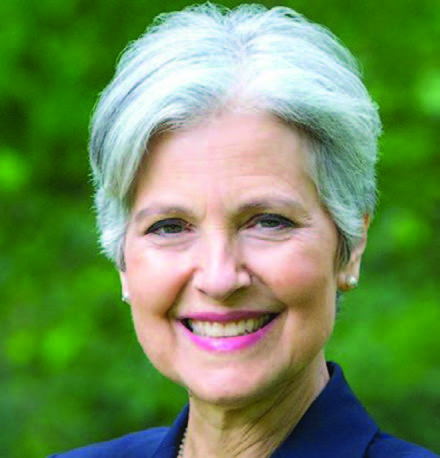
Countries that cherish democratic values need to take a stand against the president-elect’s throwback to unabashed American expansionism
“The crass activities of Trump’s sycophantic office boy, businessman Elon Musk, are all of a piece with this strategy of anti-democratic disruption and destabilization. By backing far-right parties in Germany and France, imposing his ignorant opinions on British politics and picking gratuitous fights with the EU, all the while hiding behind the fuzzy screen of unaccountable, fact-free social media, Musk advances a Trump agenda that is fundamentally about control. Control of politicians and political discourse, control of open debate and communication, control of territory, trade and wealth, to be achieved through transactional deal-making, crude barter, intimidation, humiliation, subversion and through threats of force.”
Watching politicians promise one thing, then do another, is a common experience in all democratic countries. Situations in which voters do not expect a politician to keep his word, and in many instances fervently hope and pray he will not, are rarer. Donald Trump, the US president-elect, fits this latter category. When Trump threatens to subjugate Canada, a Nato ally, by force, unilaterally annex Greenland, the autonomous territory of a friendly EU state, and override Panama’s sovereignty for bogus security reasons, most people assume he is not serious and his remarks carry little real significance. This response, while comforting, is a mistake.
It’s entirely possible that Trump, pumped with hype, hot air and testosterone in the lead-up to his 20 January inauguration, is being gratuitously disruptive. He likes to shake things up. It amuses his Make America Great Again (Maga) hyper-nationalist fan club. It may be that this former property developer and convicted felon, who counts himself a shrewd negotiator, is deliberately raising the stakes before more reasoned discussions about security and trade. But it is also possible Trump means what he says.
If so, Trump will be following a well-trodden, discredited path. These days it is somehow considered impolite, especially if you are British, to remind Americans that their republic was also once an unapologetically imperial power. In the late 19th and early 20th centuries, US administrations aggressively pursued their own version of the colonial empires of contemporary Britain, Germany, and France. In 1893, the sovereign state of Hawaii (whose royal family enjoyed close ties to Queen Victoria) fell victim to an American-assisted coup. In 1898, the US annexed Hawaii. Guam, Samoa and Puerto Rico followed. America’s loosely interpreted “manifest destiny” demanded ever more. The Philippines, Cuba and even China were all on the receiving end of US political-military, commercial and territorial ambitions.
Far from being abandoned, neocolonialist American thinking persisted well into the latter half of the 20th century, operating under various guises. Newly-independent countries in Africa, the Middle East and Asia, liberated from collapsing European empires, were invited to join the “free world,” as defined and dominated by Washington. America promised protection and prosperity within the US-policed, post-1945 cold war order in return for fealty (plus military bases, trade concessions and access to resources). States that declined the invitation, such as Iran, Vietnam, and Nicaragua, paid a high price.
Trump’s half-baked neo-imperialist tendencies are but one aspect of a deliberately disruptive modus operandi Viewed from this perspective, Trump’s territorial ambitions are not so much an aberration as a throwback or regression to periods of unabashed American expansionism. And his motives are not dissimilar. As in the past, it’s all about security, cash and control. Greenland has valuable mineral wealth. It also has growing strategic importance, vis-a-vis China and Russia, as the Arctic Sea ice melts and new trade routes open up. The US already maintains a military base there. Trump sees a lucrative opportunity – and by absorbing Greenland’s vast territory, a chance to make America even greater, again. Trump claims the protectionist, high-tariff America First policies he espouses were the reason why the US, at the height of the Gilded Age in the 1890s, was, in his words, “probably the wealthiest it ever was because it was a system of tariffs”. Like Denmark and Panama (where Trump would like to get his hands on the canal), Canada has robustly rejected his turgid annexation fantasies. But mercantilist ideas dating from that period plainly influence his thinking, such as it is. Justin Trudeau, Canada’s prime minister, says Trump’s menacing talk is a tactic designed to distract attention from the damaging inflationary impact of his threatened 25% increase in taxes on Canadian imports such as oil, electricity, timber and steel. “Everything American consumers buy from Canada [is] suddenly going to get a lot more expensive if he moves forward on these tariffs,” Trudeau warned.
The broader, significant point is that Trump’s half-baked neo-imperialist tendencies are but one aspect of an overall, deliberately disruptive modus operandi designed to suborn, co-opt and disadvantage friend and foe alike. His intervention helped spur pre-existing turbulence in Canadian politics, resulting in Trudeau’s resignation. He has stirred up the longstanding independence debate in Greenland, where most people would probably prefer to be free of both Copenhagen and Washington. In Mexico, another target of his geopolitical wrecking ball, Trump’s antics grimly recall decades of Yanqui bullying and meddling in Latin America.
The crass activities of Trump’s sycophantic office boy, businessman Elon Musk, are all of a piece with this strategy of anti-democratic disruption and destabilization. By backing far-right parties in Germany and France, imposing his ignorant opinions on British politics and picking gratuitous fights with the EU, all the while hiding behind the fuzzy screen of unaccountable, fact-free social media, Musk advances a Trump agenda that is fundamentally about control. Control of politicians and political discourse, control of open debate and communication, control of territory, trade and wealth, to be achieved through transactional deal-making, crude barter, intimidation, humiliation, subversion and, ultimately, through threats of force.
This is how Trump operates. For him, this is “strongman” leadership. For others, it resembles mafioso-style extortion. It is this imperious, domineering, unscrupulous, manipulative and unprincipled, self-serving behavior that the world’s leaders must face up to once again over the coming four years. Britain and like-minded countries that cherish democratic values and free societies should not duck the challenge. Better to take a stand and draw a line now, as Greenland’s leaders have bravely done, than risk being steamrollered into subservience and satrapy.
(Observer Editorial)





Be the first to comment